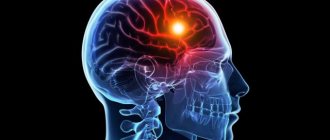According to a study by psychologists, the human subconscious is not capable of inventing anything new, previously unknown.
Everything that it “produces” is based on acquired knowledge, experience, and instincts. All memories, imagined images are based on real events that are deep in human memory, even if he himself does not realize it.
The technique of hypnosis allows you to use this psychological pattern to help people remember and re-evaluate events experienced in the distant past. Or restore significant facts and details of the incident, forgotten due to stress, shock, or violent intervention.
What it is?
Hypnosis is an altered state of consciousness generated by the directed action of a hypnotist or self-hypnosis, which is characterized by an intermediate state on the verge of wakefulness and dreamless sleep.
Arises from focusing on:
- the voice of a specialist or musical accompaniment;
- specific subject;
- own breathing;
- impressions;
- memories.
In a state of hypnosis, a person is completely relaxed, in a blocked state of consciousness, while being able to see and feel uncontrollable images of the subconscious.
During hypnotic influence, the hypnotist gains access to the unconscious sphere of the personality, thereby having the opportunity to influence the system of beliefs, attitudes, habits, and preferences of the subject.
Meditation as the key to self-hypnosis
Meditation is the process of relaxing the body and focusing attention on one's own breathing, bodily sensations, or a foreign object. As a result, the mind is cleansed of negative thoughts, unnecessary experiences, and irritants from the outside world.
Using meditative techniques, a person is able to enter a trance-like hypnotic state and, through self-suggestion, achieve a state of serenity and harmony for sleep and calming the nervous system.
Instilling certain attitudes into yourself will allow you to change your habits, way of thinking and behavior. Thereby having a positive impact on well-being and self-realization in general.
Cost of services
| COURSE THERAPIES | |
| NAME OF SERVICE | price, rub. |
| Remaxol 400 ml. | 2,000 rubles |
| Cytoflavin No. 1 amp. | 2,000 rubles |
| Sterofundin 500 ml. | 1,000 rubles |
| Metabolic therapy (for the blood vessels of the brain, cardiac system and nervous system) - 1 dropper | from 3,000 rubles |
| Metabolic therapy - course (5 droppers) | from 10,000 rubles |
| Hepatoprotectors (for the liver) - 1 dropper | from 3,000 rubles |
| Hepatoprotectors - course (5 droppers) | from 10,000 rubles |
| Nootropic therapy (for the brain) – 1 dropper | from 3,000 rubles |
| Nootropic therapy - course (5 droppers) | from 10,000 rubles |
| PROMOTIONS AND DISCOUNTS | |
| When applying again | 5% discount on treatment |
| Disabled people and war veterans | 5% discount on treatment |
| Large families | 10% discount on treatment |
* Dear patients! The administration tries to promptly update the price list posted on the website, but in order to avoid possible misunderstandings, we ask you to clarify the cost of services on the day of your call by calling 24/7.
The posted price list is not an offer.
Treating stress with hypnosis is a kind of “psychic surgery,” only with a less traumatic effect than surgery on the body. During the procedure, the patient falls into a light hypnotic sleep, and the doctor carefully influences the hidden and subconscious elements of his psyche in order to identify and eliminate the causes of stress. Another option is to change the patient’s attitude towards them.
Types of hypnosis
The main task of introducing a person into hypnosis is to gain control over his fears, experiences, addictions and physical condition.
According to the degree and methods of influence, the following types of hypnosis are distinguished:
- Classical (directive) hypnosis. Direct influence method, in which the individual voluntarily agrees to conduct a session and fulfills the hypnologist’s conditions. Involves an instant shock method of inducing a deep hypnotic state. Suggestion is carried out in the form of specific rigid installations in directive form. It is used in medicine to get rid of drug and alcohol addiction, smoking, obsessive depression and stress.
- Ericksonian (permissive) hypnosis. Unlike the classical method, in this case the suggestions are soft, unobtrusive. The hypnotized person does not lose control over the situation and has the right to accept or reject the proposed settings. The method of the American psychotherapist Milton Erickson implies an individual approach to the problem of each client, providing the opportunity for personal awareness of problems and unfulfilled desires.
The introduction to a trance state is carried out gradually, starting with a normal conversation. After which the hypnologist begins to work with the patient’s imagination, allowing him to realize the source of the problem and find a solution. Visualization plays an important role. Images of getting rid of a problem are deposited in the individual’s subconscious, helping him to cope with psychological difficulties in the future. The method helps to get rid of stuttering and aerophobia, increase a person’s social adaptation, and instill confidence before public speaking. - Regressive hypnosis. While in a deep trance, the subject remembers past events in detail, without controlling his consciousness. A hypnologist is able to suggest to a person that he is at an early age.
From this moment it is possible to track fears, stress and emotional experiences that have long been forgotten by the patient, but have a negative impact on his mental and physical health, character, and behavior. At certain stages of the session, the specialist softly makes the necessary suggestions to help identify and eliminate the consequences of psychological trauma. - Self-hypnosis - acts through body relaxation, concentration and self-suggestion of positive attitudes.
Allows you to quickly relax at home, cope with stress, take control of your feelings and sensations, normalize sleep, learn to manage emotions and desires. For the successful practice of self-hypnosis, regular exercises are necessary, leading to the harmonization of the soul, body and the surrounding world.
How to get rid of neurosis born in childhood
Experts in the field of psychology and psychiatry are unanimous in their opinion: problems of a nervous nature are a consequence of upbringing in childhood. The period of personality formation becomes a “thorn” that is difficult to pull out in adulthood. Psychotraumas suffered in childhood form in a person traits that become defining at an older age, and it is more difficult to treat neurosis in an adult than in a child. A child who has suffered psychological trauma before the age of 14 withdraws into interests inappropriate for his age, completely ignoring communication with peers (and, in contrast, becoming interested in reading, painting, music and philosophy, which often delights parents - “Oh, what an intellectual child!”). It should be noted that in such conditions the psyche does not suffer, but the harmony of personality formation is disrupted.
Another problem of personality formation is the imposition of adult interests, suppression of activity, overprotection, solving problems for the child, inflated demands - these factors cause the formation of a neurotic personality type and a psychologically dependent personality. A distinctive feature of a neurotic child is lack of self-confidence, timidity, isolation and detachment from society. Such children stand out from their peers, become “black sheep” and outcasts in children’s groups, and in adulthood need treatment for neurosis.
In the modern world, the number of disorders in children is growing exponentially. If the 1972 research by V.A. Kolegova spoke about 14-22% of children susceptible to the disease, while modern research by A.I. Zakharov in 1995 speaks of 46% among boys and 37% among girls. In addition, children aged 8 to 12 years are susceptible to this, at a time when children bear the burden of responsibility for studying and helping their parents. Therefore, special attention should be paid to the treatment of neurosis in children.
How and where to learn hypnosis
Mastering hypnosis for beginners is possible both independently and under the guidance of a specialist.
The main task of immersion in a hypnotic trance is to focus on the internal state of a person.
Methods on how to learn hypnosis yourself at home:
- Master the technique of concentration. To do this, you should start by focusing your gaze on the selected object without blinking. Doing this exercise regularly will help you develop a subjugating gaze.
- Mastery of ideomotor skills, which allows you to use a concentrated gaze to send commands to your opponent to perform certain actions. You can practice on your immediate surroundings, sending a signal to the person to straighten his hair, look around, or take an object.
- To successfully conduct a session, you need to establish a trusting relationship with the subject and choose a comfortable location.
- Focus on the patient's gaze, listen to his breathing, and mentally capture internal sensations.
- In a calm, confident voice, inform the person that he is walking along the road and with each step he is plunging deeper into a hypnotic trance. At the end of the journey he will be able to be completely in a state of hypnosis.
Hypnosis lessons will not give instant results. Persistent, systematic training is required. Anyone who wants to learn how to master hypnosis has the right to choose the most optimal and accessible way of learning: from books, at trainings, in specialized educational institutions.
Where to learn hypnotherapy:
- Training in courses, trainings and seminars from professional teachers. Systematic classes with practical work will bring maximum results.
- Specialized literature, articles on the Internet, audio materials, scientific publications of psychotherapists.
- The Moscow Institute of Hypnosis conducts individual training courses under the guidance of honored doctors of the Russian Federation. Convenient class schedule, 90% practice, limited groups of students, regular scientific research. At the end of the training a certificate is issued.
- Alternative Hypnosis Laboratory is a thematic group of social networks. The YouTube channel has published many videos with educational material on regressive hypnosis, methods of its use, and the results of its impact on humans.
“They count neurotics in the fall,” or obsessive-compulsive neurosis
Exacerbation of neurotic conditions occurs in spring and autumn; during this period there are a greater number of calls to a hypnologist with this problem. And here the main danger lies in fears, difficulties in communication, inability to enjoy life, conflict, increased excitability, decreased activity against the background of physical ailments. Before starting treatment for neurosis , you should clearly determine how obsessive states and panic attacks manifest themselves.
Background or acute anxiety is a constant companion of a nervous disorder, and the body spends the lion’s share of energy to overcome it. A “by-product” of psychological and emotional anxiety is somatic pain of unknown etiology, and many doctors, providing assistance in the treatment of the musculoskeletal system, gastrointestinal tract, dermatology, etc., do not suspect that the problem is of a neurotic nature and neurosis needs to be treated.
A person often suffering from nervous disorders complains of general ailments, pain in different parts of the body, poor sleep and chronic fatigue, panic attacks, and obsessive thoughts. Given anxiety, a person, trying to determine the cause of poor health, undergoes a lot of examinations and consultations with specialists - from traumatologists and gastroenterologists to oncologists, and all doctors unanimously declare that the patient is absolutely healthy, and that neurosis must be treated first.
Types and forms of neurosis
Psychological problems are multifaceted; they do not allow analysis on one plane. Neurosis can have various causes, however, there are 2 main types of such conditions:
- Traumatic (arising against the background of some traumatic event). The range of such problems is rarely predictable: it can manifest itself as a mild functional disorder or up to a neurotic psychosis with severe post-traumatic symptoms. A person who has plunged into traumatic psychosis is unable to independently cope with the tension that has arisen, which is why his psyche “gives” a defensive reaction to stress.
- Psychoneurosis, or in other words, nervous overstrain. Such a psychological reaction of the body becomes habitual when it is impossible to perform any action, often when it is impossible to get rid of both positive and negative emotions.
There are 3 clinical forms of neurosis, which are usually taken as basic:
- Neurasthenia, accompanied by autonomic disorder, irritability, drowsiness and tearfulness. Patients may experience problems falling asleep, nightmares, unreasonable fears, panic attacks, obsessive thoughts, intolerance to smells and sounds. Neurosthenics may have headaches or other areas of the body. Many people, especially women, mistakenly consider such disorders to be a manifestation of premenstrual syndrome or menopause.
- Hysterical – occurs mainly in individuals of the hysterical circle. As a rule, it is limited to women, mainly at a young age. The distinctive features of these types are high suggestibility. Associated features of hysteria: the appearance of all kinds of phobias, increased anxiety, depression, poor general health, autonomic disorders.
Obsessive-compulsive disorder is the prerogative of people with anxious and suspicious character traits. Regardless of the obsessive or compulsive type of the disease, obsessive disorders in this form are expressed in the form of the patient’s appearance of obsessions, ideas, cravings and phobias.
What help is needed in the treatment of neurosis?
With inappropriate attention to problems of a nervous nature, they can go into the category of psychiatry, and treatment will not be limited to psychotherapeutic correction. For example, an acute neurotic reaction to the death of a loved one, provided the psyche is healthy, can resolve on its own. In the presence of neurosis, a person’s position takes on neurotic forms, he ceases to be active and joyful, and any contact with society causes physical suffering. In such states, people lose their jobs, get divorced, stop communicating with loved ones, and commit a lot of other actions that are inexplicable to themselves, which become the cause of internal conflict and personality deformation.
Without psychological help, a person loses a significant part of productivity in all areas of life. And the first step in helping a neurotic is a diagnostic consultation with a hypnologist or psychotherapist. A set of measures to eliminate nervous disorders, as a rule, includes correction of the psychological state, physical support of the body (therapeutic massage, physiotherapy, aromatherapy, etc.), actions to change a situation that is traumatic to the psyche (change of place of residence, work, team). Our hypnologist will determine a scheme of actions for the treatment of neurosis, which will become the basis for therapy.
Help from a hypnologist in the treatment of neuroses
The help of a hypnologist is the last “lifesaver” of many specialists in the field of gastroenterology, cardiology and other areas of medicine. It is to him that doctors send patients with vague symptoms and atypical diseases. Very often, the cause of such symptoms lies in the psycho-emotional state of the patient when neurosis needs to be treated.
As for treatment, the effectiveness of this measure depends directly on understanding the mechanism of occurrence. Neurosis should not be perceived as a separate disease, and therefore should not be treated exclusively with medications. The specific action of medications can only eliminate symptoms such as tension. However, tension is far from the only problem, so it is much more important to deal with what triggered anxiety.
And here psychotherapeutic and psychoanalytic practice aimed at deep dynamics turns out to be effective. Understand that for a hypnologist, a symptom is not a goal, but a key to understanding the processes occurring in the psyche, and, therefore, a means of how to get rid of neurosis. Often, to get out of a neurotic state, the patient needs different psychotherapeutic techniques. Gestalt therapy and hypnotherapy help some, while others are satisfied with classical psychoanalysis. For example, the technique of focusing on the present is suitable for patients fixated on past events and anxious patients.
Hypnosis treatment
An experienced hypnologist in several sessions, with the consent of the patient, is able to relieve him of many ailments of a psychological and physiological nature.
With the help of hypnosis it is possible to:
- Influence people’s self-affirmation, overcome internal complexes, fears, improve memory, normalize sleep.
- Coping with sexual disorders, a depressed state of consciousness, depression.
- Overcome excess weight, stabilize digestion, cure ulcers and gastritis.
- To improve the condition of cancer patients after operations and intensive care.
- Cope with allergic and dermatological manifestations, accelerate the healing of wounds and burns.
- A hypnosis session for a married couple will allow you to find the sources of adultery, cooling towards each other, scandals and disagreements, and misunderstandings with children. Identification of the original problem and joint sessions will help spouses tune into a common harmonious mood, appreciate the love and attention of their partner, trust their children, thereby saving the family.
- Overcome addictions: alcohol, drugs, smoking, gambling.
Treatment of alcoholism with hypnosis
It should be noted that effective treatment is only possible if the patient is aware of his addiction and agrees to coding.
Sessions against a person’s will and at a distance will not produce results. Hypnotic effects are used for therapy, to consolidate the result, to eliminate the psychosis and nervous breakdown that occurs in a person when he abruptly quits drinking.
Coding for alcoholism using hypnosis is characterized by:
- lack of influence on the internal organs and metabolic processes of the body;
- long-term exposure;
- the ability to conduct sessions at home;
- the absence of medicinal stimulants and antidepressants that negatively affect the psyche.
To clearly understand the essence of what hypnosis is - a tool or a weapon, you need to find out the goal and be guided by the main rule: “do no harm .
Hypnotherapy is not entertainment; its main task is to gain control over a person’s thoughts, feelings, and behavior to harmonize psychological and physical health.
Does hypnosis help with neurosis?
Neurosis is a disease that can be not only corrected, but also treated. Since pathology is associated with the depths of the human subconscious, the original source of the problem is located there. Hypnosis is one of the effective ways to get to the root of a mental disorder. Many psychotherapeutic methods fail to do this in the treatment of neurasthenia, phobias and other forms of mental disorders.
During the session, the patient plunges into the depths of his memory, “finds” the place, time and cause that became the starting point of the neurosis. A subconscious encounter with a problem allows you to look at it differently, change your attitude towards it, and find resources to solve it. The patient does not need to learn to control his emotional state. When the source of the problem is “extracted” from the head, the emotional state itself will return to normal.
The advantages of hypnotic influence also include the absence of side effects, as with taking medications, psychological comfort, and quick results. Disadvantages include the immunity of some people to hypnotherapy, as well as the return of symptoms of the disorder if the patient has not done enough work on himself after the sessions.











